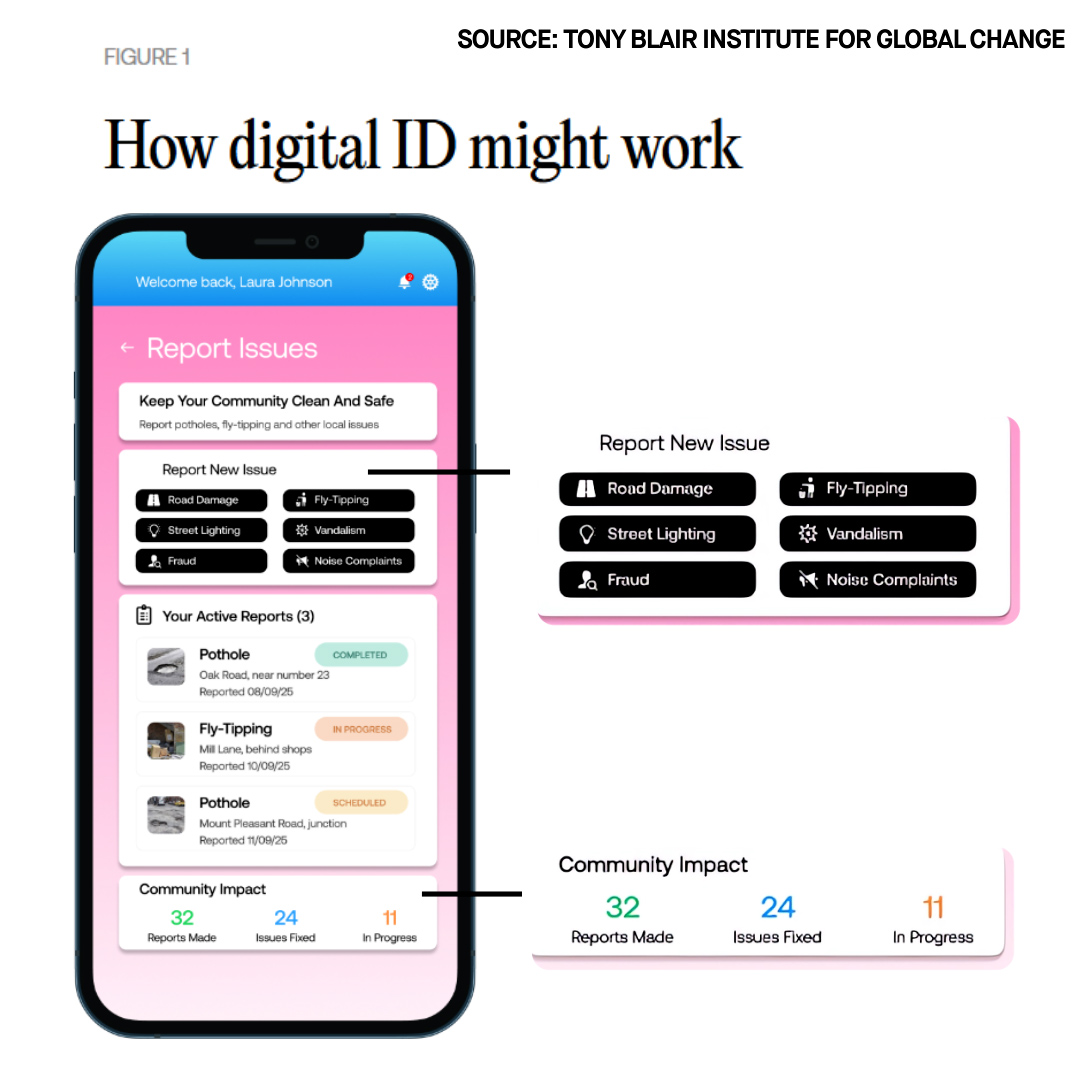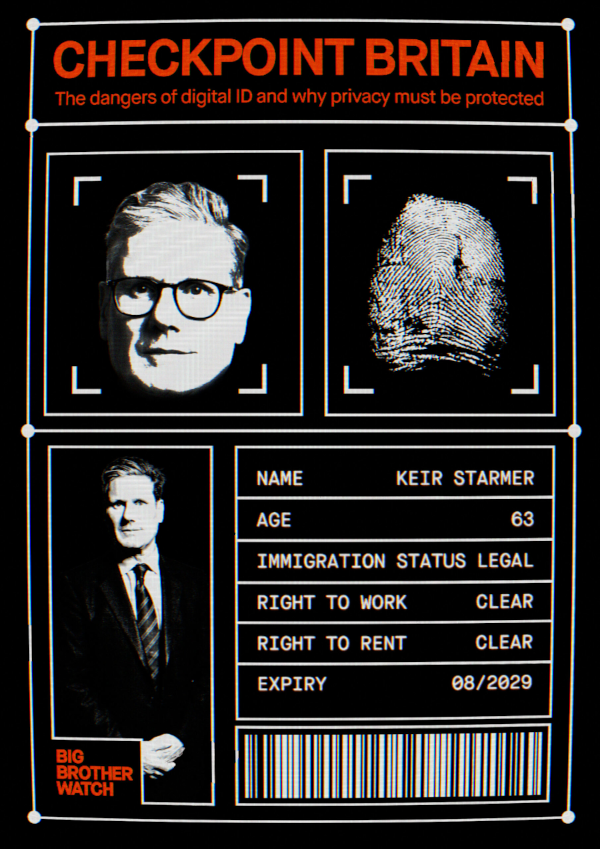The Government is considering a proposal for a mandatory digital ID scheme called "BritCard" that would make us all reliant on a digital pass to go about our daily lives.
This system would fundamentally change the nature of our relationship with the state and turn the UK into a “papers, please” society.
We all want to be able to prove who we are safely, privately, and conveniently. But a mandatory digital ID is not a magic solution for all situations. It is inconsistent with the values that underpin a free society and poses serious risks to privacy, security and equality.

People in marginalised, vulnerable and minority groups are more likely to have reduced access to online services (e.g. people with disabilities, low income or the elderly), particularly where digital identity is a requirement.
A centralised digital ID scheme would also be a honeypot for hackers and foreign adversaries, creating huge digital security risks for our data.
Politicians have tried and failed to sell digital IDs to the British public as a vital solution to a range of issues including fighting terrorism and even protecting us from Covid.
But Britain has historically rejected various forms of mandatory ID. We must reject this one too.
KEY FINDINGS
- At their worst, digital ID systems can enable population-wide surveillance, curb liberties, predict and shape people’s decisions, or be abused for the tracking and targeting of marginalised groups.
- There is little evidence to prove that a digital ID system would deter illegal immigration or employment fraud. It would instead burden law-abiding citizens and businesses.
- A digital ID system is highly likely to be used for more than just its original purpose. The government is already considering proposals that would require digital ID for employment and rent checks.
- A digital ID could be used to track everyday interactions such as voting online, paying bills, and shopping.
- The eVisa system’s errors and failures raise serious doubts about the government’s ability to manage a giant digital ID system.
A majority of the British public have expressed serious concerns about the government’s ability to protect the vast amounts of personal data collected in a digital ID scheme - Far from being a backwards outlier, the UK is in good company with countries that have inherited its legal systems such as Canada, Australia, and New Zealand in consistently rejecting mandatory ID systems.
KEY ARGUMENTS AGAINST MANDATORY DIGITAL ID
1. CHECKPOINT SOCIETY
A sprawling digital ID system would make us all reliant on a digital pass to go about our daily lives and usher in a new era of mass surveillance.
More Info
It could easily impact a range of everyday activities from access to GP appointments, banking, online voting, receiving benefits and even trips to the pub.
We would be increasingly required to prove who we are, turning us into a checkpoint society. We know what it is like to be subject to identity checks when travelling outside of the country - imagine these borders being replicated inside our country. The state would gain enormous control and treat the entire population with suspicion.
2. MISSION CREEP
A digital ID would not only be used to prove who you are.
Digital ID systems have already been proposed as solutions to a range of issues from fighting terrorism to controlling immigration and even fixing pot holes.
Let us be clear - barcoding Britain will not solve all of these problems.
More Info
Instead, such a system risks morphing into a far-reaching instrument of state control, such as being linked to facial recognition technology, or even used to sort and segregate people based on health status.
3 HONEYPOT FOR HACKERS
A digital ID system would force the entire adult population in the UK onto one giant database. This would create a honeypot for hackers and foreign dictators who, like we've seen with numerous cyberattacks, have a track record of trying to breach databases. They expose not just names and emails, but intimate details of people’s lives
More Info
The evidence is clear - a majority (63%) of the British public do not trust the Government with keeping their data secure, independent YouGov polling commissioned by us reveals.
4. DIGITAL DISCRIMINATION
Mandatory digital ID would seriously damage equality in the UK. People with disabilities, low income or the elderly are more likely to have reduced access to online services, particularly where digital identity is a requirement.
More Info
Only about 20 per cent of Universal Credit applicants can use online ID verification methods.
Forcing a digital ID on every adult in the UK could mean that a large number of people are unable to freely participate in society.
5. UNDEMOCRATIC AND ILLIBERAL
From WWII IDs, to Blair-era ID cards introduced in the wake of 9/11 and vaccine passports in 2021, the British public has repeatedly and successfully fought back against identity card schemes.
More Info
The fight against ID cards is about more than just databases – it’s about protecting our rights and freedoms. It’s about empowering citizens against overbearing authorities. We are more than just a number, and registration code, or worse, a health risk score.
We must now reject plans for an all-encompassing digital ID system that grants itself sweeping access to our private lives with the promise to monitor, manage and predict us.


Comments